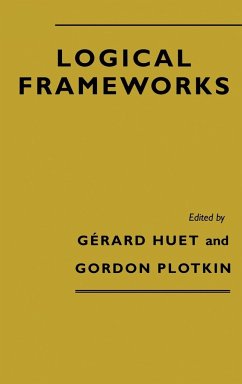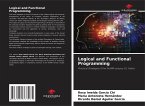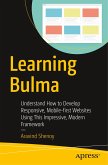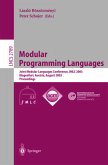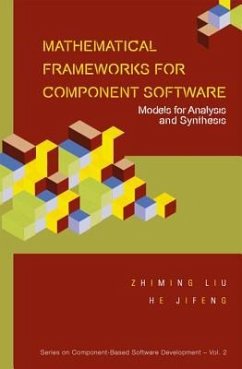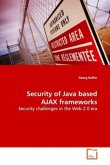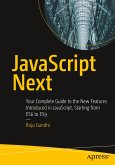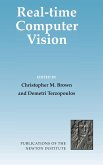- Gebundenes Buch
- Merkliste
- Auf die Merkliste
- Bewerten Bewerten
- Teilen
- Produkt teilen
- Produkterinnerung
- Produkterinnerung
This 1991 volume contains the proceedings of the first international workshop on Logical Frameworks.
Andere Kunden interessierten sich auch für
![Logical and Functional Programming Logical and Functional Programming]() Rosa Imelda García ChiLogical and Functional Programming26,99 €
Rosa Imelda García ChiLogical and Functional Programming26,99 €![Learning Bulma Learning Bulma]() Aravind ShenoyLearning Bulma31,99 €
Aravind ShenoyLearning Bulma31,99 €![Modular Programming Languages Modular Programming Languages]() BöszörményiModular Programming Languages39,99 €
BöszörményiModular Programming Languages39,99 €![Mathematical Frameworks for Component Software: Models for Analysis and Synthesis Mathematical Frameworks for Component Software: Models for Analysis and Synthesis]() Mathematical Frameworks for Component Software: Models for Analysis and Synthesis164,99 €
Mathematical Frameworks for Component Software: Models for Analysis and Synthesis164,99 €![Security of Java based AJAX frameworks Security of Java based AJAX frameworks]() Georg RafferSecurity of Java based AJAX frameworks32,99 €
Georg RafferSecurity of Java based AJAX frameworks32,99 €![JavaScript Next JavaScript Next]() Raju GandhiJavaScript Next38,99 €
Raju GandhiJavaScript Next38,99 €![Real-Time Computer Vision Real-Time Computer Vision]() Demetri Terzopoulos / M. Brown (eds.)Real-Time Computer Vision113,99 €
Demetri Terzopoulos / M. Brown (eds.)Real-Time Computer Vision113,99 €-
-
-
This 1991 volume contains the proceedings of the first international workshop on Logical Frameworks.
Hinweis: Dieser Artikel kann nur an eine deutsche Lieferadresse ausgeliefert werden.
Hinweis: Dieser Artikel kann nur an eine deutsche Lieferadresse ausgeliefert werden.
Produktdetails
- Produktdetails
- Verlag: Cambridge University Press
- Seitenzahl: 416
- Erscheinungstermin: 26. Januar 2011
- Englisch
- Abmessung: 235mm x 157mm x 29mm
- Gewicht: 823g
- ISBN-13: 9780521413008
- ISBN-10: 0521413001
- Artikelnr.: 26967362
- Herstellerkennzeichnung
- Libri GmbH
- Europaallee 1
- 36244 Bad Hersfeld
- gpsr@libri.de
- Verlag: Cambridge University Press
- Seitenzahl: 416
- Erscheinungstermin: 26. Januar 2011
- Englisch
- Abmessung: 235mm x 157mm x 29mm
- Gewicht: 823g
- ISBN-13: 9780521413008
- ISBN-10: 0521413001
- Artikelnr.: 26967362
- Herstellerkennzeichnung
- Libri GmbH
- Europaallee 1
- 36244 Bad Hersfeld
- gpsr@libri.de
1. The logical theory of constructions P. Aczel and D. Carlisle; 2. The
Boyer-Moore theorem prover and Nuprl: an experimental comparison D. Basin
and M. Kaufmann; 3. Girard normalisation proof in LEGO S. Beradi; 4. A plea
for weaker frameworks N. de Bruijn; 5. Deliverables: an approach to program
development in the Calculus of Constructions R. Burstall and J. McKinna; 6.
Finding computational content in classical proofs R. Constable and C.
Murthy; 7. An algorithm for testing conversion in type theory T. Coquand;
8. A proof synthesis algorithm for testing conversion in type theory G.
Dowek; 9. Inductive sets and families in Martin-Löf's type theory and their
set-theoretic semantics P. Dybjer; 10. Encoding a dependent-type
lambda-calculus in a logic A. Felty and D. Miller; 11. Nederpelt's calculus
extended with a notion of context as a logical framework P. de Groote; 12.
Models of partial induction L. Hallnäs; 13. Goal-directed proof
construction in type theory L. Helmink; 14. Elf: a language for logic
definition and verified meta-programming E. Pfenning; 15. Investigations
into proof-search in a system of first-order dependent function types D.
Pym and L. Wallen; 16. The role of elimination inferences in a structural
framework P. Schroeder-Heister.
Boyer-Moore theorem prover and Nuprl: an experimental comparison D. Basin
and M. Kaufmann; 3. Girard normalisation proof in LEGO S. Beradi; 4. A plea
for weaker frameworks N. de Bruijn; 5. Deliverables: an approach to program
development in the Calculus of Constructions R. Burstall and J. McKinna; 6.
Finding computational content in classical proofs R. Constable and C.
Murthy; 7. An algorithm for testing conversion in type theory T. Coquand;
8. A proof synthesis algorithm for testing conversion in type theory G.
Dowek; 9. Inductive sets and families in Martin-Löf's type theory and their
set-theoretic semantics P. Dybjer; 10. Encoding a dependent-type
lambda-calculus in a logic A. Felty and D. Miller; 11. Nederpelt's calculus
extended with a notion of context as a logical framework P. de Groote; 12.
Models of partial induction L. Hallnäs; 13. Goal-directed proof
construction in type theory L. Helmink; 14. Elf: a language for logic
definition and verified meta-programming E. Pfenning; 15. Investigations
into proof-search in a system of first-order dependent function types D.
Pym and L. Wallen; 16. The role of elimination inferences in a structural
framework P. Schroeder-Heister.
1. The logical theory of constructions P. Aczel and D. Carlisle; 2. The
Boyer-Moore theorem prover and Nuprl: an experimental comparison D. Basin
and M. Kaufmann; 3. Girard normalisation proof in LEGO S. Beradi; 4. A plea
for weaker frameworks N. de Bruijn; 5. Deliverables: an approach to program
development in the Calculus of Constructions R. Burstall and J. McKinna; 6.
Finding computational content in classical proofs R. Constable and C.
Murthy; 7. An algorithm for testing conversion in type theory T. Coquand;
8. A proof synthesis algorithm for testing conversion in type theory G.
Dowek; 9. Inductive sets and families in Martin-Löf's type theory and their
set-theoretic semantics P. Dybjer; 10. Encoding a dependent-type
lambda-calculus in a logic A. Felty and D. Miller; 11. Nederpelt's calculus
extended with a notion of context as a logical framework P. de Groote; 12.
Models of partial induction L. Hallnäs; 13. Goal-directed proof
construction in type theory L. Helmink; 14. Elf: a language for logic
definition and verified meta-programming E. Pfenning; 15. Investigations
into proof-search in a system of first-order dependent function types D.
Pym and L. Wallen; 16. The role of elimination inferences in a structural
framework P. Schroeder-Heister.
Boyer-Moore theorem prover and Nuprl: an experimental comparison D. Basin
and M. Kaufmann; 3. Girard normalisation proof in LEGO S. Beradi; 4. A plea
for weaker frameworks N. de Bruijn; 5. Deliverables: an approach to program
development in the Calculus of Constructions R. Burstall and J. McKinna; 6.
Finding computational content in classical proofs R. Constable and C.
Murthy; 7. An algorithm for testing conversion in type theory T. Coquand;
8. A proof synthesis algorithm for testing conversion in type theory G.
Dowek; 9. Inductive sets and families in Martin-Löf's type theory and their
set-theoretic semantics P. Dybjer; 10. Encoding a dependent-type
lambda-calculus in a logic A. Felty and D. Miller; 11. Nederpelt's calculus
extended with a notion of context as a logical framework P. de Groote; 12.
Models of partial induction L. Hallnäs; 13. Goal-directed proof
construction in type theory L. Helmink; 14. Elf: a language for logic
definition and verified meta-programming E. Pfenning; 15. Investigations
into proof-search in a system of first-order dependent function types D.
Pym and L. Wallen; 16. The role of elimination inferences in a structural
framework P. Schroeder-Heister.

